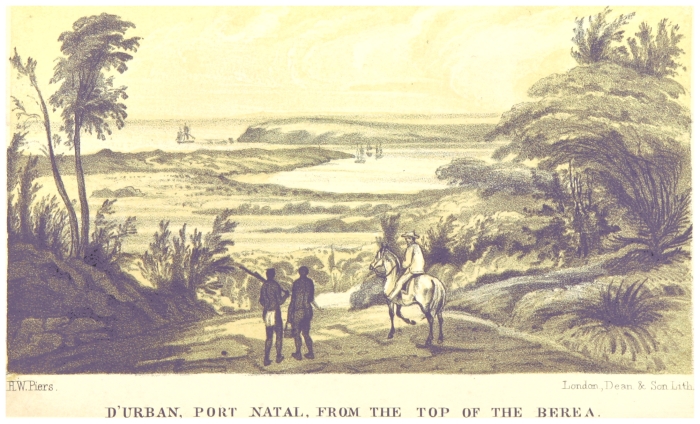
In 1844 British troops secured the annexation of the Natal from the short-lived republic set up by the Africaner Voortrekkers in 1838. The opening up of Southern Africa in the nineteenth century drew thousands to leave Europe and settle on what had been termed ‘the Dark Continent’. One of those attracted to this new opportunity was Henry Johnstone.
Johnstone had decided to emigrate and had booked his travel on the Justina which was due to sail on the 1 July 1850. He’d paid £5 17s and 6d (about £350) as a deposit for his passage to John Murdoch. However, when he turned up to embark he was told by Murdoch that the ship was delayed, there would now be no sailing until the 18 July. The agent refused to issue him with a boarding card, despite him offering to pay the balance there and then.
Henry was now in some difficulties. He had given up his position and his lodgings and so was left out of work and homeless in the meantime. As a result Johnstone took his compliant to the Mansion House court.
The magistrate agreed that Murdoch was at fault. He told him that under the terms of government legislation surrounding emigration and passage, ‘you were bound to provide…a passage for the complainant, in an equally eligible ship within 48 hours…and to pay his subsistence in the meantime’. Murdoch claimed he was happy to pay the man’s subsistence while he waited for his ship to sail (now due on the 21st July) but only at 1s a day.
No, the magistrate countered, that would not do and was not within the terms of the contract the pair had entered into. Murdoch’s argument was in part based upon him not having issued Henry with his embarkation order (something the latter had requested and had the money to pay for). This would have meant he paid no more than 20 shillings to Johnstone while he waited, which was not sufficient to live on.
The justice decided that instead Murdoch was liable for up to £10 in that period so ordered him to repay the deposit and give Henry 40s in compensation, which he did. Does this mean Henry changed his plans and stayed in England? We might not know for sure but there was nothing to stop him looking for a sister ship or indeed turning up on the 21st and taking his chances on the Justinia.
Footnote: Henry Johnstone may have been one of Joseph Byrne’s settlers as someone matching his name appears in a list of those traveling to Natal between 1848-51. Byrne offered emigrants land and passage on a sliding scale of rates. Land was allotted under a government approved scheme aimed at encouraging migration to this new corner of Empire. Byrne seems something of a chancer, he lost heavily on the scheme due to a lack of research on the ground on his part (he didn’t visit Natal until 1851) and many settlers were left unhappy, at least initially. Byrne comes out of the scheme badly despite his best attempts to write his own place in history; he did however help establish the colony, his emigration scheme being responsible for around 2,600 people moving to the Natal. Port Natal is now part of the city of Durban, the second largest in South Africa.
[from The Morning Chronicle, Monday, July 8, 1850]